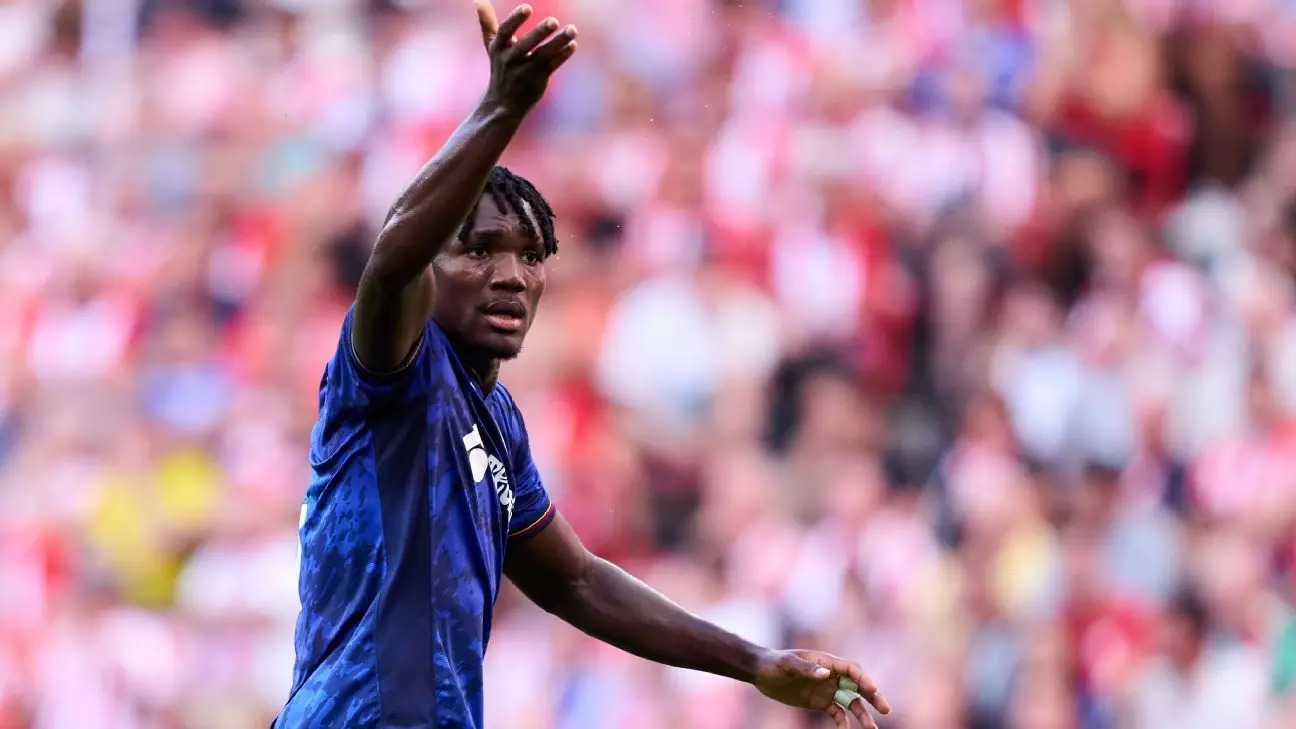In recent years, professional football has battled numerous challenges surrounding discrimination, particularly racism. The experience of players from minority backgrounds serves as a stark reminder that the sport must grapple with these issues at all levels. A particularly poignant example emerges from Getafe’s Nigerian midfielder, Christantus Uche, whose criticisms of both refereeing and racist abuse highlight essential problems within LaLiga. Uche, who is navigating his first season in Spain’s top division after joining from Ceuta, has vocalized the painful disparity he encounters on the pitch, drawing attention to systemic failures that need addressing.
Refereeing Injustice: A Personal Account
Uche has expressed frustration over the treatment he has received from referees, asserting a clear lack of fairness in officiating. He has experienced rough tackles that often go unpunished, noting how referees seem to overlook fouls directed at him while quickly acting when other players are targeted. Uche described these early encounters with officials as “so bad,” indicating a sense of injustice that compounds the already challenging experience of being a player in a new league.
The midfielder articulated how being dismissed following a harsh tackle erodes not only his safety but also his confidence on the field. “You cannot do anything, you don’t have any power because the referee has the power to do whatever he wants,” he lamented. This systemic bias can adversely affect a player’s performance, contributing to a cycle of intimidation and discouragement. Uche’s frustration speaks volumes about the need for better training and accountability among officials, ensuring that they uphold the integrity of the game across racial and ethnic lines.
Adding to the challenges on the pitch, Uche has also confronted racial abuse from fans. He has recounted instances of being subjected to derogatory comments, which he identifies as part of a broader cultural problem within Spanish football. Uche’s revelations are not isolated; they echo the experiences of players like Vinícius Júnior, who has also been vocal about the racial toxicity that overshadows LaLiga. Uche’s statement, “Racism is not good; it has to stop. Everybody is the same,” conveys a universal truth that transcends sport and speaks to the fundamental values of society.
The weight of such abuse can impact a player’s mental health and overall well-being, creating an environment in which individuals feel vulnerable simply for being true to their identity. Uche’s experience reflects the need for more robust measures to combat racism, including fan education, stricter penalties for offenders, and better support systems for players who endure discrimination.
As Uche pointed out, the implications of racism in sport extend beyond the pitch. The sentiment resonates with Vinícius Júnior’s warning regarding the potential repercussions if Spain fails to address these issues, suggesting that the country could lose its right to host major international tournaments. Both players emphasize the importance of feeling safe and respected in environments where they are celebrated for their talent.
The pressure to make significant changes is mounting. The governing bodies of football must prioritize a culture of inclusivity, ensuring that all players are treated equally regardless of their background. This not only enhances player morale but also fosters a more positive atmosphere for fans, contributing to the sport’s growth and integrity.
Despite the myriad adversities he faces, Uche remains grateful for the opportunity to compete at the highest level in LaLiga. He expresses a determination to demonstrate his skills and prove his worth in an environment that is often less than welcoming. His story is not just about personal trials but reflects a broader narrative about the need for systemic reform in professional football.
As LaLiga and its stakeholders reckon with the realities of racism and inequality, Christantus Uche’s voice stands as a testament to the ongoing struggle for dignity and respect in sport. It is imperative that everyone involved come together to cultivate a more equitable and inclusive football culture, allowing every player, irrespective of their background, to thrive in a fair and just environment.

